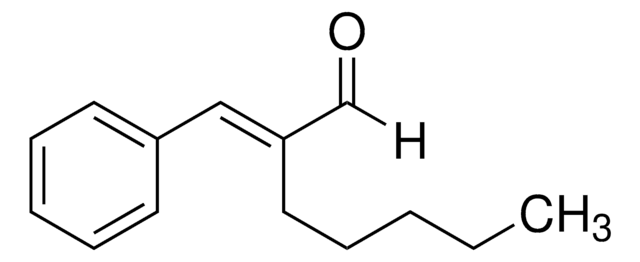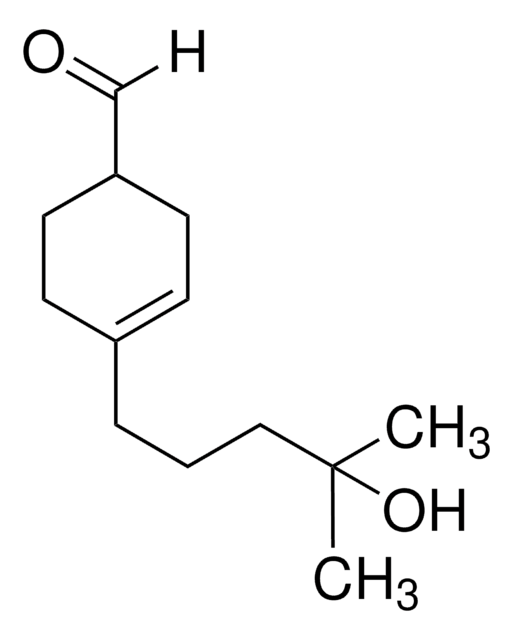277509
Methyl 2-octynoate
99%
Synonym(s):
Methyl heptine carbonate, NSC 72098
Sign Into View Organizational & Contract Pricing
All Photos(1)
About This Item
Linear Formula:
CH3(CH2)4C≡CCO2CH3
CAS Number:
Molecular Weight:
154.21
Beilstein:
1756887
EC Number:
MDL number:
UNSPSC Code:
12352100
PubChem Substance ID:
NACRES:
NA.22
Recommended Products
Quality Level
Assay
99%
form
liquid
refractive index
n20/D 1.446 (lit.)
bp
217-220 °C (lit.)
density
0.92 g/mL at 25 °C (lit.)
functional group
ester
SMILES string
CCCCCC#CC(=O)OC
InChI
1S/C9H14O2/c1-3-4-5-6-7-8-9(10)11-2/h3-6H2,1-2H3
InChI key
FRLZQXRXIKQFNS-UHFFFAOYSA-N
Looking for similar products? Visit Product Comparison Guide
General description
Methyl 2-octynoate has been quantitated as suspected allergen in cosmetic products by headspace-programmed temperature vaporization-fast gas chromatography-quadrupole mass spectrometry. It participates in nickel-catalyzed carbocyclization of 2-iodoacetophenone to yield a 2,3-disubstituted indenol.
Signal Word
Warning
Hazard Statements
Precautionary Statements
Hazard Classifications
Aquatic Acute 1 - Aquatic Chronic 3 - Skin Sens. 1A
Storage Class Code
10 - Combustible liquids
WGK
WGK 2
Flash Point(F)
192.2 °F - closed cup
Flash Point(C)
89 °C - closed cup
Personal Protective Equipment
dust mask type N95 (US), Eyeshields, Gloves
Choose from one of the most recent versions:
Already Own This Product?
Find documentation for the products that you have recently purchased in the Document Library.
Dinesh Kumar Rayabarapu et al.
Chemical communications (Cambridge, England), (9)(9), 942-943 (2002-07-19)
Carbocylization of o-halophenyl ketones with propiolates in the presence of Ni(dppe)Br2 and Zn powder in acetonitrile at 80 degrees C afforded the corresponding 2,3-disubstituted indenols.
Miguel del Nogal Sánchez et al.
Analytical and bioanalytical chemistry, 397(6), 2579-2591 (2010-05-25)
In the present work, a strategy for the qualitative and quantitative analysis of 24 volatile compounds listed as suspected allergens in cosmetics by the European Union is reported. The list includes benzyl alcohol, limonene, linalool, methyl 2-octynoate, beta-citronellol, geraniol, citral
I Takanami et al.
Gan no rinsho. Japan journal of cancer clinics, 30(4), 340-343 (1984-04-01)
Results of methyl heptine carbonate skin tests were compared with DNCB skin test results in 155 patients with chest diseases. Reactions to methyl heptine carbonate and DNCB were similar in 142 of 155 patients (92%). Forty-two lung cancer patients and
Jurij J Hostynek et al.
Cutaneous and ocular toxicology, 25(4), 259-271 (2006-12-13)
The fragrance material methyl heptine carbonate has been cited as a moderately frequent cause of cosmetics-related allergic contact dermatitis. A review of the literature shows that when the underlying clinical data are analyzed, there is only one published case where
[Cutaneous delayed hypersensitivity to methyl hepatine carbonate in pulmonary tuberculosis].
I Takanami
Nihon Kyobu Shikkan Gakkai zasshi, 24(10), 1066-1070 (1986-10-01)
Our team of scientists has experience in all areas of research including Life Science, Material Science, Chemical Synthesis, Chromatography, Analytical and many others.
Contact Technical Service










